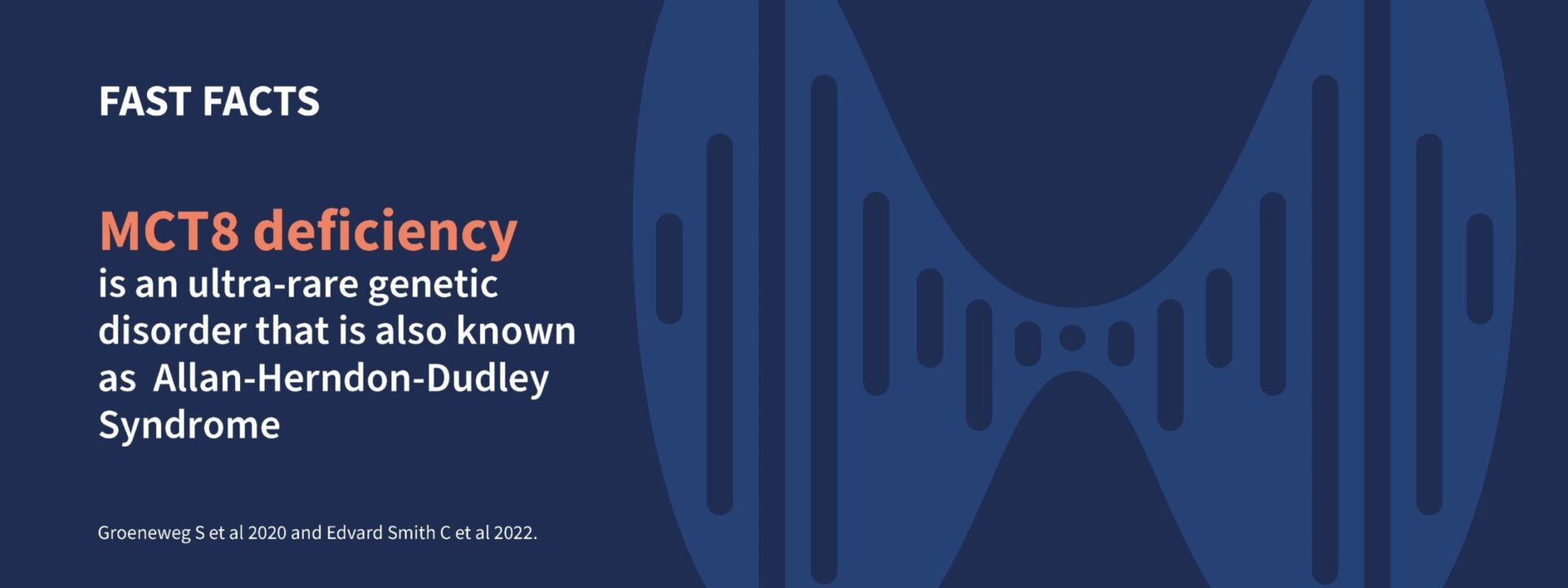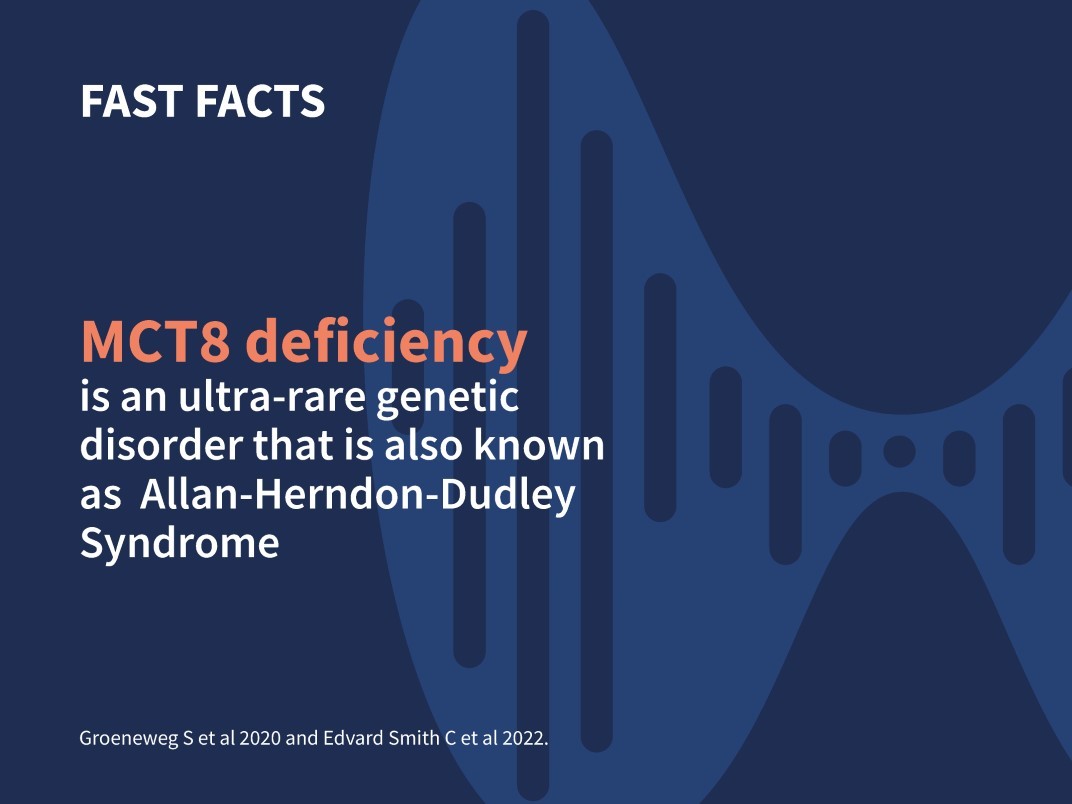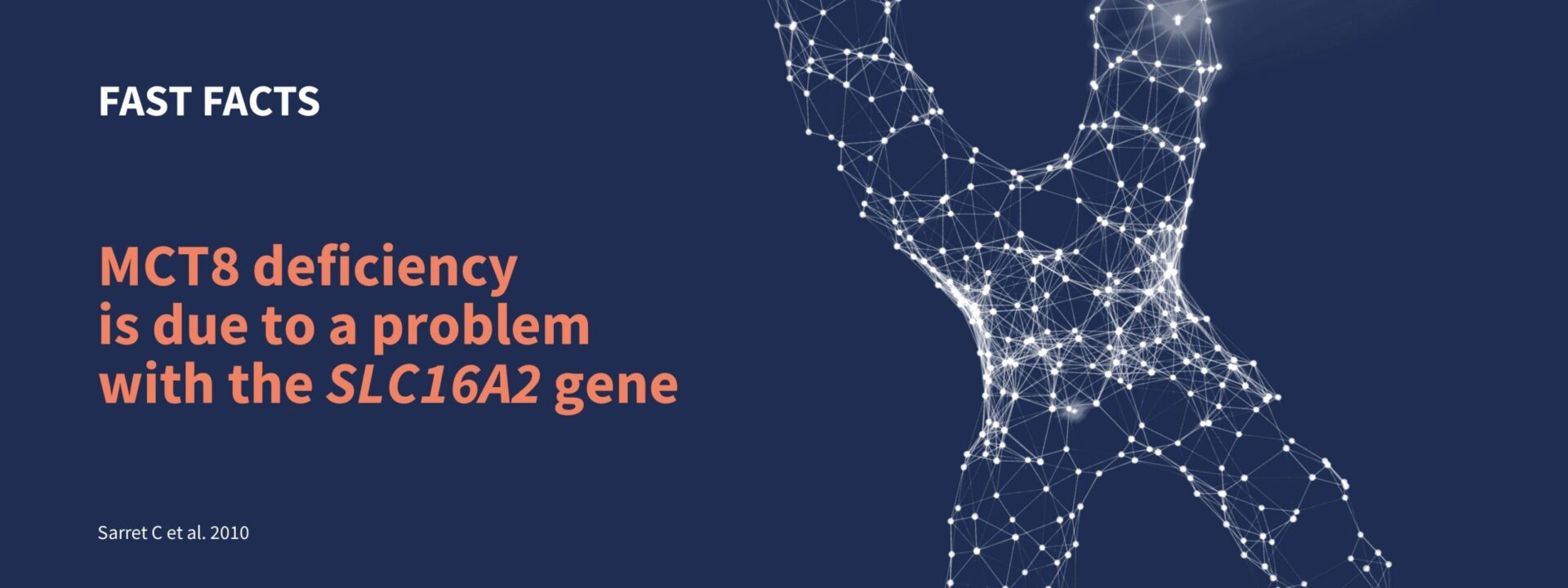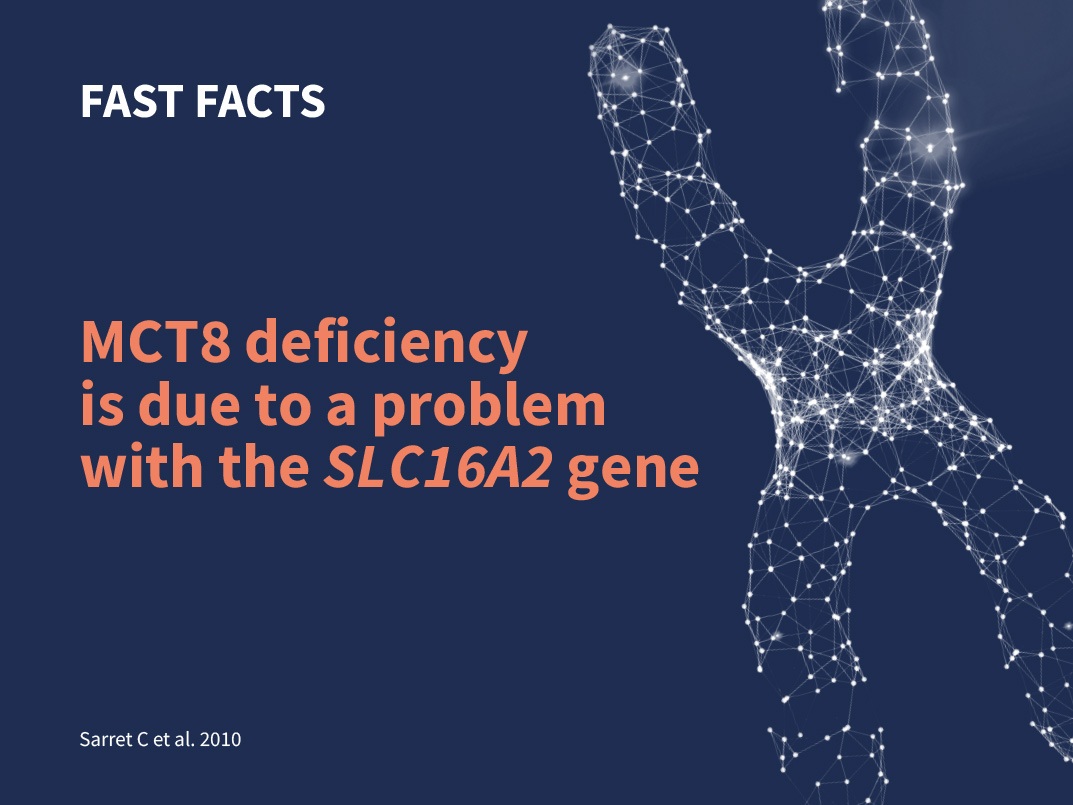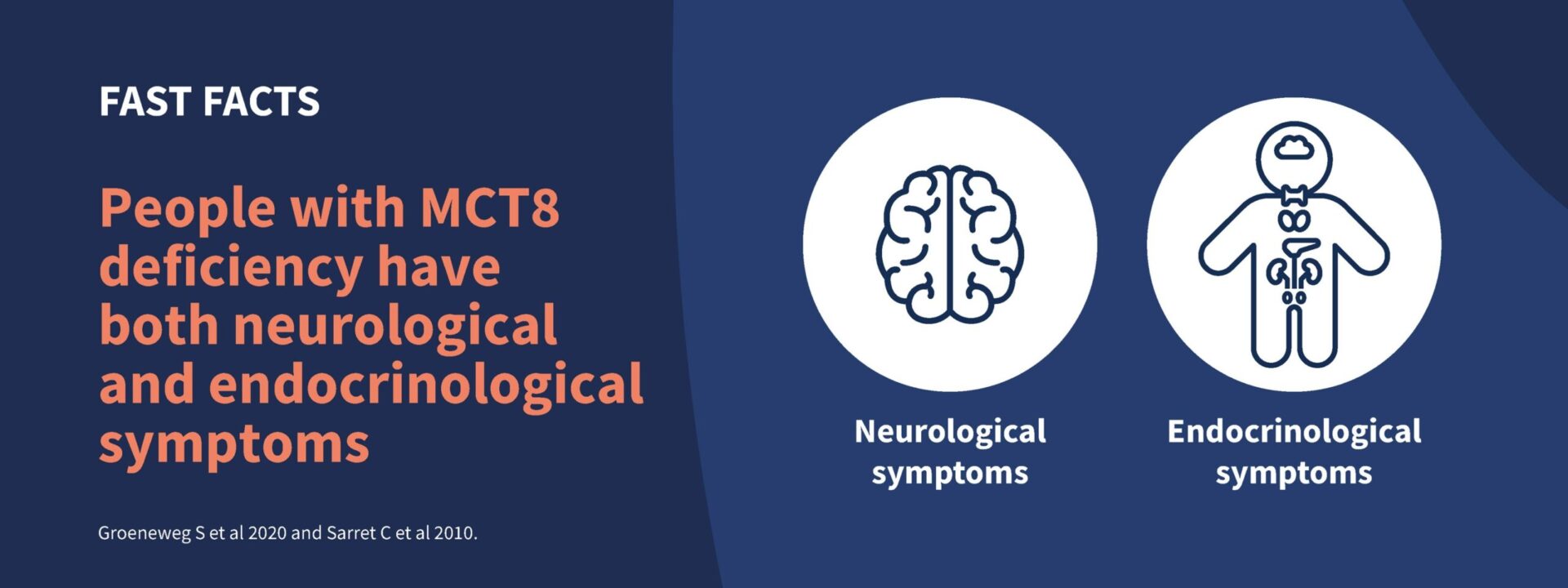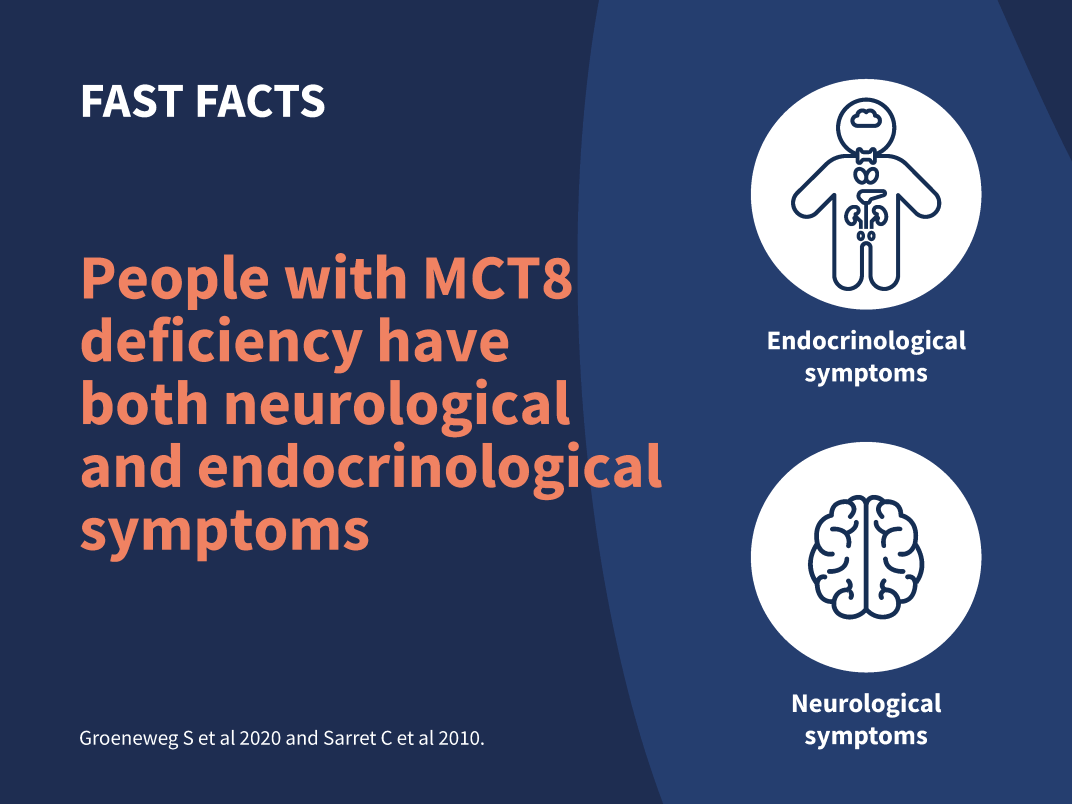HE’S HAD EVERY
TEST IMAGINABLE EXCEPT
THE ONE
HE NEEDS
Identify MCT8 deficiency by adding a T3 test
to the standard thyroid function panel.

ABOUT MCT8 DEFICIENCY
MCT8 deficiency, also called Allan-Herndon-Dudley Syndrome, is an ultra-rare, X-linked genetic disorder that has a profound impact on the lives of patients, families, and caregivers.1,2 Find out more about the prevalence, pathophysiology and symptoms of MCT8 deficiency by clicking the link below.

DIAGNOSING MCT8 DEFICIENCY
The current diagnosis and treatment pathway in MCT8 deficiency relies on first-hand insights and expertise from key endocrinologists, neurologists, and geneticists who have a specific knowledge of the disorder.
Although MCT8 deficiency is ultra-rare, the combination of symptoms and a specific pattern of thyroid hormone levels can help it to be identified.3 Explore thyroid and genetic tests key to MCT8 deficiency diagnosis here.

RESEARCH & RESOURCES
Looking for additional information on MCT8 deficiency? Find links to ongoing research as well as resources for healthcare professionals and patients in the link below.

CLICK TO CONNECT WITH US FOR UP-TO-DATE INFORMATION ABOUT MCT8 DEFICIENCY
MCT8, monocarboxylate transporter 8.
References: 1. Groeneweg S, et al. Lancet Diabetes Endocrinol 2020;8(7):594−605; 2. Edvard Smith CI, et al. iScience 2022;25:104698; 3. Sarret C, et al. Allan-Herndon-Dudley Syndrome. 2010 Mar 9 (updated 2020 Jan 16). In: Adam MP, et al, editors. GeneReviews® (Internet). Seattle (WA): University of Washington, Seattle; 1993–2023.

